News
The present report contains a review of the work of the United Nations system entities, focusing on inter-agency coordination and systemic coherence for a more effective and efficient implementation of the Sendai Framework for Disaster Risk Reduction 2015–2030, which was endorsed by the General Assembly in its resolution 69/283 in 2015. Subsequently, in 2016, the revised United Nations Plan of Action on Disaster Risk Reduction for Resilience (United Nations Plan of Action on Disaster Risk Reduction for Resilience: Towards a Risk-informed and Integrated Approach to Sustainable Development) was endorsed by the United Nations System Chief Executives Board for Coordination (CEB) at its spring session in 2016. Disaster risk reduction is an essential strategy to ensure the achievement of the 2030 Agenda for Sustainable Development. In addition, the Sendai Framework calls for the United Nations system as a whole to support its implementation in a coordinated, effective and coherent approach, within the respective mandates of the United Nations entities.
In order to assess the current status of integration of disaster risk reduction in the work of the United Nations system, the report analyses the extent to which the organizations have integrated the issue of disaster risk reduction in their corporate priorities, with regard to either normative or operational activities to implement their mandates. It also presents the organizations’ self-reported information on their level of engagement to implement their commitments made through their endorsement of the United Nations Plan of Action on Disaster Risk Reduction for Resilience. The review assesses the level of engagement of the JIU participating organizations in contributing to the implementation of the three commitments of the United Nations Plan of Action, namely: (a) strengthening system-wide coherence in support of the Sendai Framework and other agreements through a risk-informed and integrated approach; (b) building United Nations system capacity to deliver coordinated high-quality support to countries on disaster risk reduction; and (c) ensuring that disaster risk reduction remains a strategic priority for the organizations of the system.
The present review identifies the existing cooperation between the United Nations system and the regional and national stakeholders on disaster risk reduction. The three recommendations of the report, one to governing bodies and two to executive heads, aim to address gaps and reinforce collaboration among the system organizations to work as one, effectively and efficiently delivering on disaster risk reduction strategies in the context of the 2030 Agenda.
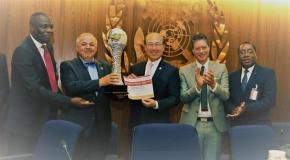 Joint Inspection Unit received the WASD Sustainable Development Award
Joint Inspection Unit received the WASD Sustainable Development Award
Following a decision of its International Advisory Board of the World Association for Sustainable Development (WASD), the Joint Inspection Unit of the United Nations system was conferred the Sustainable Development Award 2018. The Award ceremony took place on 17 June 2019, in London, on the occasion of the 17th International Conference of WASD.
At the opening of the ceremony, Allam Ahmed, president of the Association, stated that the Award was bestowed to JIU “for the promotion of Global Partnership, in particular with respect to the role the academic and research community and the private sector in the implementation of the Sustainable Development Goals”. The laudatio was pronounced by Geoff Thompson, Chair of Governors Board, Youth Forum, University of East London.
The Award was handled to Inspector Petru Dumitriu in his capacity as coordinator of JIU reviews on “The United Nations system –private sector partnership arrangements in context of the 2030 Agenda for Sustainable Development” and “Strengthening Policy Research Uptake in service of the 2030 Agenda”.
The Secretary-General of the International Maritime Organization, Kitack Lim, was presented at the ceremony. He expressed full support for the JIU recommendations contained in its report on the partnerships with the private sector in the context of “enhancing engagement with business [and] increasing coordination of innovation partnerships”.
JIU review of UN-SWAP first phase of implementation (2012-2017)
 The System-wide Action Plan on Gender Equality and the Empowerment of Women (UN-SWAP) was designed as an accountability framework to measure, monitor and drive progress towards a common set of 15 performance indicators to achieve gender equality and the empowerment of women. It operationalizes the System-wide Policy on Gender Equality and the Empowerment of Women endorsed in 2006 by the United Nations Chief Executives Board (CEB). The progress achieved against the performance indicators through the implementation of the programme is considerable during the first phase of implementation (2012-2017).
The System-wide Action Plan on Gender Equality and the Empowerment of Women (UN-SWAP) was designed as an accountability framework to measure, monitor and drive progress towards a common set of 15 performance indicators to achieve gender equality and the empowerment of women. It operationalizes the System-wide Policy on Gender Equality and the Empowerment of Women endorsed in 2006 by the United Nations Chief Executives Board (CEB). The progress achieved against the performance indicators through the implementation of the programme is considerable during the first phase of implementation (2012-2017).
The assessment of the JIU’s inspectors is that UN-SWAP is a useful framework and a credible benchmark towards gender mainstreaming. Since UN-SWAP is based on self-assessment and self-reporting by participating entities, quality assurance mechanisms need to be effective and regularly reviewed by the 66 reporting entities. The endorsement of the action plan by the CEB provided system-wide leadership commitment to implement the policy and is a cornerstone of success for the programme. The responsibility of executive leaders to create an enabling environment is a key factor in ensuring the effective implementation of the plan and of gender-related components of corporate policies.
UN-SWAP provides a truly unique system-wide model for a well-elaborated framework of performance indicators for monitoring of progress on gender mainstreaming in a systematic and harmonized manner. However, the current system-wide reporting mechanism to the Economic and Social Council can be enhanced by presenting both aggregated and disaggregated figures for individual entities in order to increase accountability, and the role of governing bodies could be strengthened through increased attention to the annual letter addressed by UN-Women to the executive management of the reporting entities.
As per its mandate, UN-Women has been the lead agency for coordinating and facilitating the design, development and implementation of the programme. Existing inter-agency networks (evaluation, audit, strategic planning, human resources, etc.) have been leveraged to support the development and the implementation of the framework. UN-SWAP is seen as a system-wide achievement as most of the reporting entities had a hand in the development of the framework and its implementation.
The elements of an accountability framework are present both system-wide and at the level of individual organizations. The Inspectors invite the United Nations General Assembly to endorse the five formal recommendations included in the report as a means of furthering the effective implementation of the United Nations System-wide Action Plan on Gender Equality and the Empowerment of Women and strengthening the accountability of the United Nations system with regard to gender mainstreaming, gender equality and the empowerment of women.
Note: the image was taken for the UNSWAP Technical guidelines document issued by UN-Women.
The Joint Inspection Unit pilots a research partnership with young researchers from the Graduate Institute for International and Development Studies
 In its report on “Strengthening policy research uptake in the context of the 2030 Agenda for Sustainable Development”, the Joint Inspection Unit encouraged United Nations organizations to establish research partnerships with academia. The JIU is delighted to have the opportunity itself to engage master students from the Graduate Institute for International and Development Studies in a research programme. This is a first for the JIU.
In its report on “Strengthening policy research uptake in the context of the 2030 Agenda for Sustainable Development”, the Joint Inspection Unit encouraged United Nations organizations to establish research partnerships with academia. The JIU is delighted to have the opportunity itself to engage master students from the Graduate Institute for International and Development Studies in a research programme. This is a first for the JIU.
The topic of the research is “The use of blockchain applications in the implementation of the 2030 Agenda: a critical (SWOT) analysis” and it will be conducted under the framework of the Capstone Research projects, which are part of the Masters curricula and carry 9 ECTS (European Credit Transfer and Accumulation System).
The research objectives are, inter alia, to: i) undertake a SWOT (strengths /weaknesses /opportunities /threats) analysis of blockchain from a theoretical perspective; ii) identify lessons learned and challenges related to the use of blockchain applications in the field; iii) identify and take stock of the current uses of blockchain applications by United Nations system organizations; and iv) find the existence of standards and normative frameworks related to blockchain technologies.
The master students allocated to this project, Loriane Kohler, Atma Dinnie Charles, Akiko Yamamoto and Ryan Kimmitt, originate from Switzerland, India, Japan, and United States. The academic supervisor is Filipe Calvão, Ph.D., Assistant Professor, Anthropology and Sociology. The coordinator of the Capstone Research programme is Simon Lobach, teaching assistant. The coordinator of the project from JIU is Inspector Petru Dumitriu.
The results of the research will be useful to the JIU as preliminary documentation for the consideration of review topics for its programme of work.
 The 2030 Agenda for Sustainable Development, with its universal, holistic and integrative approach that cuts across all dimensions of sustainable development, makes collaborative actions and interdisciplinary approaches at the system-wide level, as well as relationships with other stakeholders, imperative. Achieving the Sustainable Development Goals requires, among other things, evidence-based policies and planning at all levels. Adequate research uptake is essential in order to comprehend the dynamic trends in economic, social and environmental developments and to anticipate and prevent emerging challenges by channelling and supporting critical thinking in policy debates.
The 2030 Agenda for Sustainable Development, with its universal, holistic and integrative approach that cuts across all dimensions of sustainable development, makes collaborative actions and interdisciplinary approaches at the system-wide level, as well as relationships with other stakeholders, imperative. Achieving the Sustainable Development Goals requires, among other things, evidence-based policies and planning at all levels. Adequate research uptake is essential in order to comprehend the dynamic trends in economic, social and environmental developments and to anticipate and prevent emerging challenges by channelling and supporting critical thinking in policy debates.
The Joint Inspection Unit conducted the first ever review of the policy research function in the United Nations system with the aim to raise awareness on the importance of this function in support of a transformative agenda for sustainable development. The review intends to acknowledge the role of research as a unique asset of the United Nations system, elevate its visibility, and find ways to make its production and uptake more efficient and transparent. It argues for the need to better hear the voices of researchers in decision-making. More importantly, the implementation of the recommendations contained in the report may lead to the strengthening of the role of the United Nations system as a creator, catalyst, and distributor of trusted, objective, and reliable research.
The report presents 12 recommendations, addressed to the General Assembly, to the Economic and Social Council, to the governing bodies of the United Nations system organizations, the Secretary-General of the United Nations, the Director General of the United Nations Educational, Scientific and Cultural Organization and to the Executive Heads of other United Nations system organizations.
 On March 11 2019, the JIU Chair Inspector Sukai Prom-Jackson introduced the annual report of the Unit (A/73/34) to the members of the Fifth Committee. Every year the Unit has the opportunity to present to Member States an account of its activities for the past year and an outline of its programme of work for the year to come. Inspector Prom-Jackson outlined the unique comparative advantage of the Unit to conduct its system-wide mandate for inspection, evaluation, and investigation. She stressed the efforts of the Unit to more systematically align its work with United Nations system-wide priorities addressing the 2030 Agenda for Sustainable Development and the ongoing reforms.
On March 11 2019, the JIU Chair Inspector Sukai Prom-Jackson introduced the annual report of the Unit (A/73/34) to the members of the Fifth Committee. Every year the Unit has the opportunity to present to Member States an account of its activities for the past year and an outline of its programme of work for the year to come. Inspector Prom-Jackson outlined the unique comparative advantage of the Unit to conduct its system-wide mandate for inspection, evaluation, and investigation. She stressed the efforts of the Unit to more systematically align its work with United Nations system-wide priorities addressing the 2030 Agenda for Sustainable Development and the ongoing reforms.
The discussions at the Fifth Committee saw a broad range of questions put forward by the representatives of Member States. Statements were made by the Observer State of Palestine (on behalf of the Group of 77 and China) and the representatives of the United States, the Republic of Moldova and the Russian Federation. In addition to the references made to the reports released in 2018 such as the review of whistleblower policies, the review of policy research uptake and on South-South Cooperation; common themes of interest included the follow-up and implementation of JIU recommendations by the participating organizations and the elaboration of the Strategic Framework of the Unit (2020-2029).
>> Click here to access the Annual report in English (the Annual Report is also available in the other official UN languages on the respective versions of the JIU website).
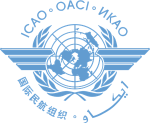 The “Review of Management and Administration in the International Civil Aviation Organization (ICAO)” was included in the JIU Programme of Work for 2018. The objective of the JIU review was to provide an independent assessment focusing on governance, oversight, organizational structure, executive, financial, human resources and results based management and support services. It served as a follow-up to the previous JIU report (JIU/REP/2007/5), which the Council of ICAO considered at its 182nd session in 2007. Some of the findings of that report are still valid and were taken into account as appropriate.
The “Review of Management and Administration in the International Civil Aviation Organization (ICAO)” was included in the JIU Programme of Work for 2018. The objective of the JIU review was to provide an independent assessment focusing on governance, oversight, organizational structure, executive, financial, human resources and results based management and support services. It served as a follow-up to the previous JIU report (JIU/REP/2007/5), which the Council of ICAO considered at its 182nd session in 2007. Some of the findings of that report are still valid and were taken into account as appropriate.
The JIU report contains five recommendations, of which one is addressed to the Assembly, two to the Council and two to the Secretary General, as well as 22 informal recommendations for further improving management and administration practices at ICAO. The report highlighted the need to review the governance arrangements and related standing practices at ICAO.
The Assembly is invited to establish at its 40th session a Panel of eminent persons to review the governance structure of the ICAO and its capacity for more effective, accountable and transparent decision-making, including, inter alia, the delineation and allocation of responsibilities between the Council and the Secretariat as well as the President of the Council and the Secretary General, the triennial cycle of the Assembly and budget of the organization (recommendation 1).
ICAO made progress in strengthening the organization’s oversight structure. The ICAO Framework on Ethics, including the investigation function, was under review at the time of the preparation of the JIU report. The Council should ensure when reviewing and updating in 2019 the ICAO Framework on Ethics that the chief investigator prepares an annual report to the Council and has access to the EAAC to raise, as necessary, any issues related to the work of the investigation function (recommendation 2). The advisory and oversight mandate of the EAAC should extend to all oversight matters, including those pertaining to the investigations and ethics functions (recommendation 3). Progress has been made in strengthening the organization’s assurance and internal control framework and risk management process. Still, further measures are needed. It is suggested that a senior manager should be designated as chief risk officer. The Secretary General should conduct by the end of 2020 a comprehensive risk assessment in ICAO (recommendation 4). ICAO faces a number of human resources management challenges in terms of composition of its work force, equitable geographical representation, gender equality, succession planning and knowledge retention. While the organization has made progress in addressing those challenges, it is missing a strategic and holistic approach. ICAO should therefore develop and adopt a comprehensive human resources management strategy (recommendation 5).
 About 15 per cent of the world’s population is estimated to live with some form of disability, and face more barriers than those without, with regard to participation in and access to deliberative processes. Making conferences and meetings fully accessible therefore becomes a critical indicator of the willingness of United Nations system organizations to “walk the talk” when it comes to non-discrimination and inclusion. The review focuses on assessing the current status of accessibility for persons with disabilities to United Nations system conferences and meetings.
About 15 per cent of the world’s population is estimated to live with some form of disability, and face more barriers than those without, with regard to participation in and access to deliberative processes. Making conferences and meetings fully accessible therefore becomes a critical indicator of the willingness of United Nations system organizations to “walk the talk” when it comes to non-discrimination and inclusion. The review focuses on assessing the current status of accessibility for persons with disabilities to United Nations system conferences and meetings.
The review directs nine recommendations to the executive heads of United Nations system organizations that include: developing comprehensive policy and guidelines on accessibility; ensuring that accessibility requirements are included in agreements with hosting entities for off-site events; appointing a focal point on accessibility; developing standard operating procedures on operational responsibilities of relevant actors on accessibility-related matters; ensuring accessible registration processes, providing accessibility related information pre-conference and conducting post-conference satisfaction surveys on accessibility; providing remote participation options for all events; undertaking periodic accessibility assessments of facilities and services with the full engagement of persons with disabilities; incorporating accessibility checks and/or requirements in procurement policies and guidelines; and developing and implementing a system-wide mandatory specialized training module on disability inclusion and accessibility for relevant personnel. It further recommends that legislative bodies include in their agendas the review of periodic reports on the state of accessibility of conferences and meetings for persons with disabilities. Click on the title to access the report. UN Photo by Eskinder Debebes.
JIU Seminar, 5th February 2019 The practice and opportunities of using behavioural approaches in organizational change management: Lessons and opportunities for the UN system
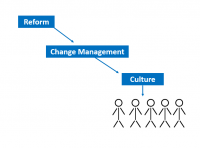 The UN Joint Inspection Unit (JIU) Change Management Review Team in collaboration with the UN System Staff College (UNSSC) hosted a seminar on the 5th February 2019 on the topic of the practice and opportunities of using behavioural approaches in organizational change management: Lessons and opportunities for the UN system.
The UN Joint Inspection Unit (JIU) Change Management Review Team in collaboration with the UN System Staff College (UNSSC) hosted a seminar on the 5th February 2019 on the topic of the practice and opportunities of using behavioural approaches in organizational change management: Lessons and opportunities for the UN system.
This seminar was conducted in the context of the JIU’s ongoing review of change management in UN system organizations. Those leading change management in the context of organizational reforms have increasingly recognised the role that organizational culture and individual behaviour play in the success (or failure) of these reforms. This seminar sought to explore the relationship between behavioural science and approaches and organizational change management through hearing and exchanging views on this topic.
The seminar was led by Dr Sukai Prom-Jackson, Lead Inspector of the Change Management review, supported by Mr. Miguel Panadero, Senior Manager at the UNSSC Knowledge Centre for Leadership and Management. The key note speech was delivered by Dr Lori Foster, Professor of Psychology at North Carolina State University, USA. Over 25 participants were present in person, and a further 25-30 online drawn from wide range of UN organizations, the private and public sectors, with a range of interesting questions posed and discussed following the presentations.
The video of the seminar can be streamed here
Dr. Foster’s presentation can be downloaded here
JIU Inspectors Eileen Cronin and Aicha Afifi introduced the Review of Whistle-Blower Policies and Practices at UNOG Executive Briefing
Representatives of 26 member States and eight organizations took part in the UNOG Executive Briefing on Tuesday, 25 September 2018 in Geneva.
 The UNOG Executive Briefings are designed to bring to Geneva’s diplomatic community and United Nations system organizations the views of key senior officials of the United Nations and its partners. This session focused on whistle-blowing and protection against retaliation (PAR) policies and practices as essential components of organizational accountability and integrity. It was organized following the issuance of a Joint Inspection Unit report that finds that no United Nations system organization fully applies best practices, raising the risk of impunity for misconduct and substantive harm to organizational reputation and operations.
The UNOG Executive Briefings are designed to bring to Geneva’s diplomatic community and United Nations system organizations the views of key senior officials of the United Nations and its partners. This session focused on whistle-blowing and protection against retaliation (PAR) policies and practices as essential components of organizational accountability and integrity. It was organized following the issuance of a Joint Inspection Unit report that finds that no United Nations system organization fully applies best practices, raising the risk of impunity for misconduct and substantive harm to organizational reputation and operations.
At the meeting, the Inspectors emphasized the main findings, conclusions and recommendations of the report. In addition to outlining the best practices criteria for written policies, the review identified that the key functions supporting the implementation of PAR policies may not be fully independent, and reporting and case-handling procedures are often vague, unclear and delayed. Poor handling of cases, as well as fear of retaliation and personal risks and fears, yield under-reporting and reduce personnel satisfaction when cases are reported. In their statement, the Inspectors emphasized the importance of the “tone at the top” for facilitating change, in that organizational leadership must develop and support a culture of accountability and integrity.
During the discussion following the presentation, six representatives of member states and organizations welcomed the JIU review, noting the importance of the topic and emphasizing the comprehensive approach to the issues addressed in the report. Participants requested clarifying information on the report methodology and data sources, and inquired on future follow-up on the recommendations made. The Inspectors responded that the JIU web-based tracking system monitors organizations’ progress on implementing recommendations, and that reviews covering related topics are in process and planned. Read the report Review of whistle-blower policies and practices in United Nations system organizations.
JIU review of management and administration in UNOPS presented to UNDP/UNFPA/UNOPS Executive Board
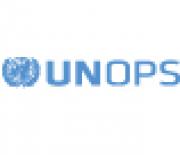 Executive Board discussed the JIU review of management and administration in the United Nations Office for Project Services and UNOPS commitment to follow up on the recommendations as a source for improvement. Inspector Gönke Roscher introduced the recent JIU review of management and administration in the United Nations Office for Project Services (UNOPS) during the UNOG segment of the meeting of the joint UNDP/UNFPA/UNOPS Executive Board on 5 September 2018 in New York.
Executive Board discussed the JIU review of management and administration in the United Nations Office for Project Services and UNOPS commitment to follow up on the recommendations as a source for improvement. Inspector Gönke Roscher introduced the recent JIU review of management and administration in the United Nations Office for Project Services (UNOPS) during the UNOG segment of the meeting of the joint UNDP/UNFPA/UNOPS Executive Board on 5 September 2018 in New York.
The UNOPS Executive Director, Ms. Grete Faremo, in her statement emphasized the role of UNOPS in the broader context of the reform of the UN development system and the continuous growth of UNOPS activities. She also welcomed the JIU review, in particular the findings regarding the success of UNOPS business model. She announced that UNOPS would report back to the Board on the implementation of the JIU recommendations.
In her statement Inspector Roscher noted that, during the review, the JIU paid special attention to the distinctive features of UNOPS, in particular its self-financing nature and its mandate for delivery of services to its partners within and outside the United Nations system. The Inspector thanked the organization for its transparency and cooperation in the review process. She underlined that, with regard to similar reviews, the findings were generally positive, a fact, which was also reflected in the comparatively low number of formal recommendations.
The review identified a few areas in which action is considered necessary to improve the efficiency and effectiveness of the organization and to strengthen integrity and accountability. To this end, three formal recommendations were made, two of which were addressed to member States through the Executive Board, and one to the Executive Director.
Therefore, the JIU recommended to the Board to adopt revised terms of reference for the Audit Advisory Committee aligned with good practices and established standards and to revisit the contingency provisions under the UNOPS budget at regular intervals. With regard to the recommendation on the strengthening of the ethics function, JIU welcomed the intention of UNOPS executive management to implement this recommendation and, as a first step, recruit an Ethics Officer at senior staff level in 2018.
Eight members of the Board participated in the following debate and referred to the JIU review and its recommendations and the commitment of UNOPS management to follow up on the recommendations as a source for improvement. One member suggested to have a more substantial discussion of the review at the first annual session of the Board in January 2019. The Board in a decision took note of the JIU review and UNOPS management response.
 Whistle-blowing and protection against retaliation (PAR) policies and practices are ess ential components of organizational accountability and integrity. This topic has taken on increasing importance in recent years given several high profile cases of whistle-blowers from United Nations system organizations who have gone public for a variety of reasons. This review focuses on assessing the effectiveness of policies, processes and procedures associated with PAR and its implementation across 28 United Nations system organizations and makes nine recommendations directed to the executive heads of United Nations system organizations for implementation.
Whistle-blowing and protection against retaliation (PAR) policies and practices are ess ential components of organizational accountability and integrity. This topic has taken on increasing importance in recent years given several high profile cases of whistle-blowers from United Nations system organizations who have gone public for a variety of reasons. This review focuses on assessing the effectiveness of policies, processes and procedures associated with PAR and its implementation across 28 United Nations system organizations and makes nine recommendations directed to the executive heads of United Nations system organizations for implementation.
Recommendations include revising PAR policies in line with best practices; reviewing the independence of relevant staff functions; creating clear reporting channels for misconduct/wrongdoing and for appeals mechanisms, improving communication and outreach strategies, and strengthening Standard Operating Procedures (SOPs) for handling misconduct/wrong-doing cases to proactively prevent retaliation; and creating separate SOPs for handling retaliation cases. Additionally, executive heads are called on to provide targeted training for managers on how to handle misconduct and retaliation allegations, as well as to regularly conduct global surveys to gauge staff feedback on ethics-related topics.
Two recommendations are addressed to legislative bodies, who are called on to ensure that policies and procedures are in place by 2020 to specifically address allegations against executive heads, that functions with a key role in misconduct/wrongdoing and retaliation cases are appropriately independent, and that they report regularly on their activities to the legislative body.
 The Joint Inspection Unit has recently completed a review of the United Nations Office for Project Services (UNOPS). UNOPS is a unique entity among the United Nations system organizations acting as the operational arm of the United Nations supporting the implementation of its partners’ peace building, humanitarian and development projects around the world with an annual portfolio of around a thousand projects, a total project delivery of 1.45 billion USD in 2016 and a workforce of around 4,000. The review confirms the specific culture of the organization with a high degree of flexibility and a strong business orientation while at the same time striving to add value to its partners’ activities. The report examines the efficiency and effectiveness of UNOPS policies and procedures in the management and administration of the organization while recognizing the unique features of UNOPS, in particular its self-financing nature and no mandate other than the delivery of services to partners inside and outside the United Nations system. The Inspector makes three formal recommendations: two are addressed to the Executive Director and one to the UNDP/UNFPA/UNOPS Executive Board which are expected to strengthen integrity and accountability as well as efficiency and coherence.
The Joint Inspection Unit has recently completed a review of the United Nations Office for Project Services (UNOPS). UNOPS is a unique entity among the United Nations system organizations acting as the operational arm of the United Nations supporting the implementation of its partners’ peace building, humanitarian and development projects around the world with an annual portfolio of around a thousand projects, a total project delivery of 1.45 billion USD in 2016 and a workforce of around 4,000. The review confirms the specific culture of the organization with a high degree of flexibility and a strong business orientation while at the same time striving to add value to its partners’ activities. The report examines the efficiency and effectiveness of UNOPS policies and procedures in the management and administration of the organization while recognizing the unique features of UNOPS, in particular its self-financing nature and no mandate other than the delivery of services to partners inside and outside the United Nations system. The Inspector makes three formal recommendations: two are addressed to the Executive Director and one to the UNDP/UNFPA/UNOPS Executive Board which are expected to strengthen integrity and accountability as well as efficiency and coherence.
Created in 1973 and made a separate and identifiable entity of the United Nations in 1995, UNOPS has over the course of years successively realigned its internal structures and business approaches to the changing environment and the needs of its partners, notably for the implementation of the 2030 Agenda for Sustainable Development. Against this background, UNOPS introduced in 2016 a major management reform programme, which led, among other things, to the adoption of a new organizational structure and a new legislative framework.
The review of UNOPS oversight functions identified a well-established and comprehensive oversight framework in place. The findings, however, indicated the need to fully align the terms of reference of its Audit Advisory Committee to the requirements of leading practices and good governance, particularly with regard to mandate, independence and membership of this important committee. Ethical standards and integrity are crucial elements of the United Nations accountability framework. When reviewing the resources and activities of the UNOPS ethics office, some shortcomings were identified. A second recommendation therefore calls for measures to strengthen the UNOPS ethics function, in particular through the establishment of a full-time staff position at senior level and additional financial resources.
The UNOPS operational reserve was established in 1997 to protect the organization and its partners against risks associated with project delivery. UNOPS has experienced strong growth of its portfolio and in total project delivery in recent years, resulting in an increasing annual net surplus. As a result, the volume of its operational reserve has grown accordingly and stands far above the required minimum. Noting the work in progress, the review recommends to revisit the status of the operational reserve and for it to be discussed by the Executive Board at regular intervals.
In the full report, the reader will find a series of supplementary informal recommendations aimed, as are the finding of the review, to support member States and UNOPS executive management in their decision-making on improving the organizational framework and related practices. The Inspector will introduce the report at the joint UNDP/UNFPA/UNOPS Executive Board second regular session on 4 to 7 September 2018, during the UNOPS dedicated segment.
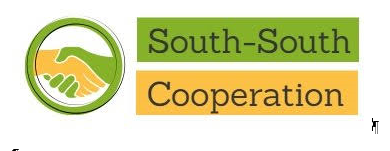 As requested by the General Assembly, the Joint Inspection Unit conducted a review of progress made on the implementation of the 12 recommendations contained in the 2011 JIU report on South-South and triangular cooperation in the United Nations system (JIU/REP/2011/3). Since 2011 notable progress has been made. A system-wide policy framework and definitions of South-South and triangular cooperation (SSTC) have been provided. The majority of United Nations entities covered by this review have established dedicated SSTC units or focal points at their headquarters. Measures to improve coherence, coordination and reporting on SSTC within the United Nations system have been implemented. Half of the entities covered by this review have achieved the targeted allocation of core budget and extrabudgetary resources for SSTC initiatives; nevertheless, inadequate resources have been a major stumbling block in advancing support for SSTC.
As requested by the General Assembly, the Joint Inspection Unit conducted a review of progress made on the implementation of the 12 recommendations contained in the 2011 JIU report on South-South and triangular cooperation in the United Nations system (JIU/REP/2011/3). Since 2011 notable progress has been made. A system-wide policy framework and definitions of South-South and triangular cooperation (SSTC) have been provided. The majority of United Nations entities covered by this review have established dedicated SSTC units or focal points at their headquarters. Measures to improve coherence, coordination and reporting on SSTC within the United Nations system have been implemented. Half of the entities covered by this review have achieved the targeted allocation of core budget and extrabudgetary resources for SSTC initiatives; nevertheless, inadequate resources have been a major stumbling block in advancing support for SSTC.
In terms of governance, in order to further improve the functioning of the High-level Committee on South-South Cooperation, consultations with member States should be pursued with a view to updating its rules of procedure and improving the inclusiveness and working arrangements of the Committee. Measures to further strengthen the United Nations Office for South-South Cooperation (UNOSSC) have been implemented. Reports produced by UNOSSC for the General Assembly and the High-level Committee on South-South Cooperation could be streamlined in order to further enhance the efficiency of UNOSSC.
JIU/REP/2018/1: Review of internship programmes in the United Nations system
 The United Nations system is going through an in-depth reform to align its functioning with its core mandates and to introduce simplified processes for more effective and efficient delivery of its work. The present review addresses the role of internship programmes as part of ongoing reform of human resources management in the United Nations system. It covers the period between 2009 and 2017, during which the size of internship programmes in the United Nations system grew significantly. It is a follow-up to the previous work of the Joint Inspection Unit (JIU) on this subject (JIU/NOTE/2009/2).
The United Nations system is going through an in-depth reform to align its functioning with its core mandates and to introduce simplified processes for more effective and efficient delivery of its work. The present review addresses the role of internship programmes as part of ongoing reform of human resources management in the United Nations system. It covers the period between 2009 and 2017, during which the size of internship programmes in the United Nations system grew significantly. It is a follow-up to the previous work of the Joint Inspection Unit (JIU) on this subject (JIU/NOTE/2009/2).
The findings of this review indicate that there has been progress in defining policy frameworks for internships but that most of the recommendations contained in JIU/NOTE/2009/2 have not been implemented. The present report proposes a benchmarking framework for good practices in internship programmes (see chap. IV) for consideration by the organizations of the United Nations system, through the establishment of an ad hoc working group within the Human Resources Network of the United Nations System Chief Executives Board for Coordination. The governing bodies of the organizations should progressively adopt the benchmarking framework as a cornerstone for the reform of internships across the system. Executive heads of the United Nations system organizations are encouraged to take action in all those areas that can be implemented within their delegated authority and to seek endorsement of the governing bodies when required. The benchmarking framework is divided in four sections, addressing: (a) the application process; (b) the internship period; (c) completion of the internship; and (d) alignment of internship programmes with the values of United Nations.
The report makes seven recommendations, of which one is addressed to the General Assembly (recommendation 4), one to governing and/or legislative bodies of JIU participating organizations (recommendation 6), one to the Secretary-General (recommendation 1) and four to all executive heads of JIU participating organizations. The implementation of all the recommendations is expected to strengthen coherence, effectiveness and accountability in the management and use of internship programmes in the United Nations system.
Three hundred participants and one hundred panellists gathered in Geneva for the Conference on the partnerships with the private sector
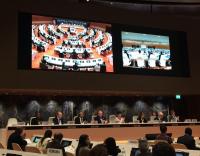 The Conference on “Public – private partnership for the implementation of the 2030 Agenda for Sustainable Development” (Geneva, 10-13 April 2018), convened by the Joint Inspection Unit and the World Association for Sustainable Development, based at the University of Sussex, brought together more than 300 registered participants, in addition to Geneva-based diplomats and public servants.
The Conference on “Public – private partnership for the implementation of the 2030 Agenda for Sustainable Development” (Geneva, 10-13 April 2018), convened by the Joint Inspection Unit and the World Association for Sustainable Development, based at the University of Sussex, brought together more than 300 registered participants, in addition to Geneva-based diplomats and public servants.
Among them were about 100 high-level experts from all professional and geographical horizons engaged in the debates triggered by the Joint Inspection Unit report on “The United Nations system – private sector partnerships arrangements in the context of the 2030 Agenda for Sustainable Development” which gave expression to the very holistic and participatory spirit of the 2030 Agenda for Sustainable Development.
The Conference represented in itself a partnership, as required for the implementation of the 2030 Agenda. It was a unique event of its kind in view of its triangular conception (United Nations organizations, academia and private sector), with the Member States sitting in the audience. All three parties found useful and inspiring cross-fertilization of ideas and perspectives triggered by the Conference.
Notably, the Conference counted on the insights offered by two Under-Secretaries General of the United Nations, heads of the International Trade Centre and of the United Nations Economic Commission for Europe, as well as the Heads of the two most important partners of the United Nations system in relation to the private sector, namely the International Organization of Employers and the United Nations Global Compact. The World Economic Forum and the International Financial Corporation representatives participated in the Conference along with CEOs from private companies and non-governmental organizations.
The participants networked with each other, and exchanged existing and new ideas of interaction and common actions. Several projects were born during the Conference, among which one on “17 hours per year education on SDG”, and “port cities and their hinterlands for sustainable development”. These two projects will be shared in the network spontaneously formed in Geneva. The author of one of the papers presented during the conference on a new method to treat leukaemia will be put in touch with officials from the World Health Organization and World Intellectual Property Organization. These are a few examples of initiatives that sprang up from the interaction between the academic world represented by WASD and the United Nations resource persons.
The Joint Inspection Unit at the opening of the Vienna workshop on knowledge management
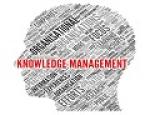 On 21 March 2018, Inspector Petru Dumitriu, coordinator of the JIU report on Knowledge Management in the United Nations system (JIU/REP/2016/10) made a key-note intervention, by skype, at the opening of the workshop organized by the Knowledge for Development Partnership in Vienna. The workshop focussed on knowledge management (KM) in international organisations, with the participation of Vienna-based international organisations and representatives of the diplomatic corps. Inspector Petru Dumitriu presented the main conclusions that resulted from the JIU report, the lesson learned and the importance of knowledge as an asset of the United Nations in the context of the 2030 Agenda for Sustainable Development. Knowledge for Development Partnership is a public-private initiative that was launched on the occasion of the Knowledge for Development: Global Partnership Conference co-hosted by JIU in Geneva (3-4 April 2017).
On 21 March 2018, Inspector Petru Dumitriu, coordinator of the JIU report on Knowledge Management in the United Nations system (JIU/REP/2016/10) made a key-note intervention, by skype, at the opening of the workshop organized by the Knowledge for Development Partnership in Vienna. The workshop focussed on knowledge management (KM) in international organisations, with the participation of Vienna-based international organisations and representatives of the diplomatic corps. Inspector Petru Dumitriu presented the main conclusions that resulted from the JIU report, the lesson learned and the importance of knowledge as an asset of the United Nations in the context of the 2030 Agenda for Sustainable Development. Knowledge for Development Partnership is a public-private initiative that was launched on the occasion of the Knowledge for Development: Global Partnership Conference co-hosted by JIU in Geneva (3-4 April 2017).
Inspector Prom Jackson at Workshop for Member States on the Revised UNICEF Evaluation Policy
Inspector Sukai Prom-Jackson was invited by the UNICEF Evaluation Office (NY) to a Workshop for Member States on the Revised UNICEF Evaluation Policy. As a member of an expert panel including Susanne Frueh, Chair of UNEG and Director of UNECSO Internal Oversight Service and Deborah Rugg, Executive Director of Claremont Evaluation Center New York. Inspector Prom Jackson presented on Creating a dynamic, responsive and responsible evaluation system through a forward looking evaluation policy. Her presentation drew on JIU studies and reports of the past 5 years including the analysis of the evaluation function in the UN system, lessons from the implementation of the GA policy on Independent System-wide evaluation of operational activities for development, results-based management in the UN system. The findings from these reports highlight current changes and challenges and implications for transformations needed in the evaluation function of the UN System to enhance its relevance, efficiency, effectiveness, impact and sustainability and its value for the 2030 Agenda.
Results-based management in the United Nations system
United Nations system organizations have been implementing results-based management (RBM) since 2002. Its value has been highlighted in resolutions of the quadrennial comprehensive policy review of operational activities for development of the United Nations system between 2004 and 2016. Results based management has been adopted in many parts of the world as organizations focus on delivering tangible improvements and changes that add value. As global challenges become more complicated and complex and as the need increases for knowledge of sound evidence of results and of what works, why and how, in managing for achieving results takes center stage.
The Joint Inspection Unit of the United Nations system has since 2004 given focus to RBM in the UN system and has developed benchmarking frameworks and conducted several reviews of RBM in organizations. An overview of RBM is also included in the single organization reviews of management and administration.
The JIU in 2015-2016 carried out two projects on RBM seeking to enhance coherence in the mainstreaming of RBM in the UN system and to enhance continued development in current times.
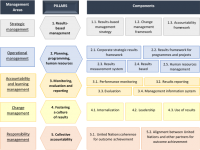 The model was developed with the intensive involvement of over 25 UN system organizations. It responds to demand from organizations for a common basis for conceptualizing and for collaboration and sharing knowledge about RBM. The model is aligned with the QCPR outcome areas. It provides a basis for self- or peer assessment of stage of development and outcomes of RBM. The assessment methodology allows for a valid assessment across organizations. It was thus used in the JIU study outlined next.
The model was developed with the intensive involvement of over 25 UN system organizations. It responds to demand from organizations for a common basis for conceptualizing and for collaboration and sharing knowledge about RBM. The model is aligned with the QCPR outcome areas. It provides a basis for self- or peer assessment of stage of development and outcomes of RBM. The assessment methodology allows for a valid assessment across organizations. It was thus used in the JIU study outlined next.
The analysis is focused on 12 UN system organizations. It finds that RBM is highly relevant in the context of 2030 Agenda as the results principles are aligned with the imperatives for the success of the 2030 Agenda. Organizations have made substantial progress since the implementation of RBM started in 2002. Progress has not however been accompanied by a commensurate level of success in making a difference in the use of results information, in changes in the results culture and human resource management, in system-wide operations with conjoint outcomes across UN system organizations, in collective action and partnerships with effect on collective accountability.
The advancement of RBM lies in addressing conceptual, structural, systemic, and political constraints. Success and added value would be enhanced when major conceptual, political, structural, systemic and governance issues analysed in the study are addressed at a system-wide level. The study makes recommendations for the continued implementation of results-based management as an outcome directed adaptive management strategy responding to fast pace of change and complexity in development, and to the imperatives of the 2030 Agenda.
Recommendations address organizational leadership and member states to shift paradigms and to balance accountability with a systematic and intentional focus on learning and adaptation based on what works, why and how; leadership that is strategic and is both responsive and responsible in managing for achieving results; a culture of results that goes beyond structures, processes, and systems to address changes in staff values and mind-set important for transformative change; an incentive system for achieving results that addresses staff accountability for results as well as accountability for transformative learning, innovation, measured risk taking, and collaboration; addressing the conjoint nature of outcomes via development of system-wide strategic framework(s) to support planning, implementation, and evaluation systems that are aligned with improvement sciences respecting the fast pace of change and challenges in development; the conceptualization and development of new models of collective accountability for collective impact. Such system-wide and collective operations require shifts in existing governance structure. The sustainability of results-based management relies on partnerships, and on the development of national systems and capacities for results-based management, evaluation and statistics. These are all important consideration for both RBM and the 2030 Agenda.
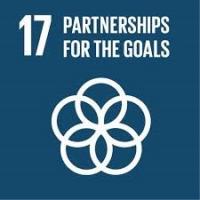 The 2030 Agenda for Sustainable Development provides unique momentum for a renewed engagement of the private sector. The report identified several ways of improving the existing arrangements for cooperation with the private sector as to reflect the holistic, integrative and universal approach of the 2030 Agenda. The report looks into the supporting framework provided by the United Nations system to facilitate the contribution of the private sector with regard to several aspects: legal, financial, administrative, operational and motivational. The report favours system-wide solutions that will fuel permanent and reliable forms of inter-agency interaction, resource pooling and knowledge sharing.
The 2030 Agenda for Sustainable Development provides unique momentum for a renewed engagement of the private sector. The report identified several ways of improving the existing arrangements for cooperation with the private sector as to reflect the holistic, integrative and universal approach of the 2030 Agenda. The report looks into the supporting framework provided by the United Nations system to facilitate the contribution of the private sector with regard to several aspects: legal, financial, administrative, operational and motivational. The report favours system-wide solutions that will fuel permanent and reliable forms of inter-agency interaction, resource pooling and knowledge sharing.
The report addresses 12 recommendations. The General Assembly was recommended to consider an update of the “Guidelines on a Principle-based Approach to the Cooperation between the United Nations and the Business Sector” and a revision of the current mandate of the Global Compact. The Economic and Social Council should invite the Executive Secretaries of the regional economic commissions to initiate and institutionalize a systematic and regular consultative dialogue with the private sector.
One recommendation is addressed to the Secretary-General is his capacity as head of the United Nations Secretariat, within his current reform initiatives: to streamline and clarify the division of labour and the specific lines of responsibility and accountability within various departments of the Secretariat, as to provide advice on, guide and facilitate partnerships.
Other recommendations fall also within the prerogatives of the Secretary-General, but their implementation will have system-wide implications and all the United Nations organisations should be consulted: i) elaboration of a set of rules and operational guidelines designed to match the specific needs of the partnerships with private sector entities, allowing for greater flexibility, simplification of procedures and speed in reaction; ii) coordination of a unique, system-wide package of information about the opportunities for partnerships offered to the private sector by the Sustainable Development Goals; iii) a multi-stakeholder mechanism of consultations and solution-seeking at the country level, steered by the Resident Coordinator, in which the businesses are involved from the beginning in the design of partnerships in support of the 2030 Agenda; iv) coordination of the existing innovation initiatives building on existing and ongoing efforts by the United Nations Innovation Network; v) enhancing the role and responsibilities of the Private Sector Focal Points Network with regard to sharing knowledge and promoting good practices.
One of the most reformative recommendations concerns the setting of a system-wide vetting system based on a common database on the profiles and performance of the businesses that are involved in partnerships with the United Nations and a minimum set of common standard procedures and safeguards for an efficient and flexible due diligence process.
The United Nations System Staff College Knowledge Centre for Sustainable Development, in cooperation with the International Trade Centre, is expected to host a system-wide online platform to facilitate communication with micro, small and medium-sized enterprises.
Review of donor-reporting requirements across the United Nations system (JIU/REP/2017/7)
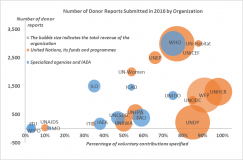 The rise in voluntary contributions, most of which is specified (or earmarked), over the past two decades has been dramatic. In the United Nations system, it amounted to about 70 per cent of total revenue in 2015. Most donors demand detailed individual reports, financial and programmatic, on the activities undertaken utilizing their earmarked contributions. This reporting is in addition to the organization’s corporate reporting to its governing bodies. Donors stipulate specific requirements that vary significantly in terms of format, detail and periodicity, resulting in a significant rise in individual donor reports. The number of reports on an annual basis often runs into hundreds and even thousands for many organizations. In addition, there has been an increase of informal or ‘soft’ reporting since many donors request additional information, supporting documentation, briefings, email updates or field visits. Providing a multitude of individual reports and maintaining all the underlying systems necessary for producing these reports come with additional transaction costs.
The rise in voluntary contributions, most of which is specified (or earmarked), over the past two decades has been dramatic. In the United Nations system, it amounted to about 70 per cent of total revenue in 2015. Most donors demand detailed individual reports, financial and programmatic, on the activities undertaken utilizing their earmarked contributions. This reporting is in addition to the organization’s corporate reporting to its governing bodies. Donors stipulate specific requirements that vary significantly in terms of format, detail and periodicity, resulting in a significant rise in individual donor reports. The number of reports on an annual basis often runs into hundreds and even thousands for many organizations. In addition, there has been an increase of informal or ‘soft’ reporting since many donors request additional information, supporting documentation, briefings, email updates or field visits. Providing a multitude of individual reports and maintaining all the underlying systems necessary for producing these reports come with additional transaction costs.
The JIU report identifies ways to improve donor reporting, better address donor needs and requirements, and enhance the standing of the United Nations system as a responsive and valuable partner. It explores possibilities for standardization and streamlining, including developing a common reporting template. The report contains seven formal recommendations, two of which are addressed to the governing bodies and five to the executive heads. It also includes 15 informal or “soft” recommendations as additional suggestions to both the organizations and the donors for effecting improvements.
The report recommends, inter alia, that organizations should engage with donors in a dialogue at the strategic level in line with Secretary-General’s proposal for a “Funding Compact”. In the spirit of partnership, views of both organizations and donors should be taken into account, notably donors’ expectations for greater effectiveness, transparency and accountability on system-wide results. One of the critical elements of the dialogue should be the adoption of donor reporting templates and accommodating the common information needs, demands and requirements of donors and the regulatory frameworks and capacities of the organizations. During the negotiation for individual contributions, organizations and donors should agree in the outset on the needs and demands, their feasibility and the attendant resource implications, including for ad hoc information and reporting requests. All relevant offices, notably finance and legal, should be consulted in a timely manner to ensure compliance with rules, regulations and policies. Appropriate guidance and training on donor reporting, periodically updated in line with changing donor needs, will foster compliance with the organization’s rules and provisions, and assure uniformity of reporting conditions accepted across the organization and hence coherence of reporting. Executive heads should encourage better access to, and dissemination of, information concerning donor reporting and maintain a corporate repository for all contribution agreements and donor reports. Defining a minimum threshold for contributions below which only standard reporting would be provided, together with methodologies for calculating reporting costs, is suggested. Organizations should ensure that their policies for the management of voluntary contributions are adequate, that they possess robust project management systems, and that their ERP and other management information systems possess the necessary functionalities for such work. The risks related to donor reporting need to be mitigated, and quality assurance processes for donor reports should be strengthened.
Organizations should treat reporting to donors as an effective tool for resource mobilization and put in place measures for strengthening partnerships so that reporting is perceived as a continuous process of building lasting relationships with partners. Robust and adequate oversight functions and reports have the potential to enhance donor confidence and reduce assurance needs that donors seek from organizations through project-specific, detailed and comprehensive reports.
Welcome to the new JIU website
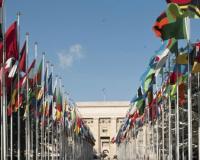 Welcome to the revamped website of the Joint Inspection Unit of the United Nations system, launched in February 2018. The site provides our visitors with information about the Unit and its contribution to the United Nations system and keeps them informed about the release of the reports and notes published by the Inspectors. This website also includes more examples of the work conducted by the JIU, clustered by themes such as management and administration, human resources, procurement, RBM, oversight etc. The website is released in English and French, with other official languages being shortly added to maintain access to all JIU products in the six official languages of the United Nations. Your feedback is welcomed at jiu@unog.ch.
Welcome to the revamped website of the Joint Inspection Unit of the United Nations system, launched in February 2018. The site provides our visitors with information about the Unit and its contribution to the United Nations system and keeps them informed about the release of the reports and notes published by the Inspectors. This website also includes more examples of the work conducted by the JIU, clustered by themes such as management and administration, human resources, procurement, RBM, oversight etc. The website is released in English and French, with other official languages being shortly added to maintain access to all JIU products in the six official languages of the United Nations. Your feedback is welcomed at jiu@unog.ch.
The Joint Inspection Unit (JIU)  has recently issued a report on air travel policies in the United Nations System that reviewed and assessed relevant air travel regulations, policies and practices and examined their implementation across the United Nations system organizations. The report was undertaken following calls from the General Assembly to improve the management of air travel and the effective and efficient use of air travel resources, as a matter of urgency. The report aims to enhance the efficiency and effectiveness of travel management among JIU participating organizations, increase accountability and transparency for managers who approve travel, increase coordination and cooperation among United Nations system organizations and promote harmonization of procedures and processes, where appropriate, by identifying good practices and lessons learned. The United Nations system is one of the largest consumers of air travel services among international organizations, due to the global presence of its offices and programmes. Travel expenditure is, not unexpectedly, one of the largest budget components, after staff costs and has increased over the past decade, despite efforts to reduce costs and make more use of technology tools such as video conferencing. On the basis of data provided by 24 United Nations system organizations, the overall expenditure on air travel and travel-related expenses totaled approximately $4 billion for the four-year period from 2012 to 2015. This figure does not include travel expenditure incurred by peacekeeping operations, political missions and the organizations that did not respond to the JIU’s request for information. In a period of increasing austerity, there is a clear justification for carefully assessing air travel regulations, rules and policies. Reviewing the standards of accommodation that each entity is currently applying for air travel, for example, provides a basis for determining whether and how greater cost effectiveness and efficiency can be achieved through changes in policy and practices that are being successfully applied in some other organizations. The report contains nine formal recommendations. Three of which are addressed to the executive heads and six to the legislative body of the participating organization, including the General Assembly. These recommendations include elimination of first-class travel, increasing the investment in communications technology as an alternative to travel, enhancing accountability in the management of air travel, strengthening the planning, monitoring and budget oversight for air travel and other practical measures to reduce the expenditure on air travel.
has recently issued a report on air travel policies in the United Nations System that reviewed and assessed relevant air travel regulations, policies and practices and examined their implementation across the United Nations system organizations. The report was undertaken following calls from the General Assembly to improve the management of air travel and the effective and efficient use of air travel resources, as a matter of urgency. The report aims to enhance the efficiency and effectiveness of travel management among JIU participating organizations, increase accountability and transparency for managers who approve travel, increase coordination and cooperation among United Nations system organizations and promote harmonization of procedures and processes, where appropriate, by identifying good practices and lessons learned. The United Nations system is one of the largest consumers of air travel services among international organizations, due to the global presence of its offices and programmes. Travel expenditure is, not unexpectedly, one of the largest budget components, after staff costs and has increased over the past decade, despite efforts to reduce costs and make more use of technology tools such as video conferencing. On the basis of data provided by 24 United Nations system organizations, the overall expenditure on air travel and travel-related expenses totaled approximately $4 billion for the four-year period from 2012 to 2015. This figure does not include travel expenditure incurred by peacekeeping operations, political missions and the organizations that did not respond to the JIU’s request for information. In a period of increasing austerity, there is a clear justification for carefully assessing air travel regulations, rules and policies. Reviewing the standards of accommodation that each entity is currently applying for air travel, for example, provides a basis for determining whether and how greater cost effectiveness and efficiency can be achieved through changes in policy and practices that are being successfully applied in some other organizations. The report contains nine formal recommendations. Three of which are addressed to the executive heads and six to the legislative body of the participating organization, including the General Assembly. These recommendations include elimination of first-class travel, increasing the investment in communications technology as an alternative to travel, enhancing accountability in the management of air travel, strengthening the planning, monitoring and budget oversight for air travel and other practical measures to reduce the expenditure on air travel.
Review of Management and Administration in the Universal Postal Union (UPU) (JIU/REP/2017/4)
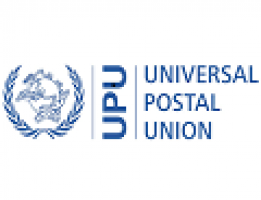 The Joint Inspection Unit recently issued a report reviewing the management and administration of the Universal Postal Union (UPU). It articulates the highly complex environment in which the organization operates and the multiple challenges that it faces, mainly generated by economic and technological developments, fundamental market changes and an erosion of its financial base. During the past years the organization has undergone several reforms to secure its operational capacity and relevance in the postal market. The JIU review aims to support the UPU in adjusting to this evolving environment and in achieving its goals. The Inspector made 10 formal recommendations (six are addressed to member countries through the Council of Administration and four are addressed to the Director General of the International Bureau, the secretariat of the organization). These recommendations, complemented by a series of other suggestions (informal recommendations), are primarily intended to promote good governance, oversight and accountability and reinforce the management framework of the UPU, as well as to contribute to enhancing the financial sustainability of the organization. UPU has operated under a zero nominal growth budget for two decades with adverse effects on the organization’s operability. Specific areas, such as the ethics function or internal oversight, but also training of staff, have suffered from this situation. The review of the organization’s financial development over recent years confirmed these challenges. In this respect, the high volume of liabilities, mainly due to the organization’s Provident Scheme and after-service health insurance, is of particular concern. The review identifies several shortcomings in the internal management of the organization and calls for reviewing the frameworks of the management, institutional, and other committees and boards, including their working procedures, to ensure synergy and complementarity. Attention should also be given to the management of human resources, notably by finalizing a corporate HR strategy and by improving the reporting modalities on HR matters to member countries. The review makes a number of suggestions to improve the oversight framework of the organization, including a formal recommendation to study the feasibility of establishing an independent audit committee by drawing on similar structures in place in other United Nations specialized agencies. The Inspector will introduce the report at the next session of the Council of Administration which will take place in Bern during the week of October 23, 2017.
The Joint Inspection Unit recently issued a report reviewing the management and administration of the Universal Postal Union (UPU). It articulates the highly complex environment in which the organization operates and the multiple challenges that it faces, mainly generated by economic and technological developments, fundamental market changes and an erosion of its financial base. During the past years the organization has undergone several reforms to secure its operational capacity and relevance in the postal market. The JIU review aims to support the UPU in adjusting to this evolving environment and in achieving its goals. The Inspector made 10 formal recommendations (six are addressed to member countries through the Council of Administration and four are addressed to the Director General of the International Bureau, the secretariat of the organization). These recommendations, complemented by a series of other suggestions (informal recommendations), are primarily intended to promote good governance, oversight and accountability and reinforce the management framework of the UPU, as well as to contribute to enhancing the financial sustainability of the organization. UPU has operated under a zero nominal growth budget for two decades with adverse effects on the organization’s operability. Specific areas, such as the ethics function or internal oversight, but also training of staff, have suffered from this situation. The review of the organization’s financial development over recent years confirmed these challenges. In this respect, the high volume of liabilities, mainly due to the organization’s Provident Scheme and after-service health insurance, is of particular concern. The review identifies several shortcomings in the internal management of the organization and calls for reviewing the frameworks of the management, institutional, and other committees and boards, including their working procedures, to ensure synergy and complementarity. Attention should also be given to the management of human resources, notably by finalizing a corporate HR strategy and by improving the reporting modalities on HR matters to member countries. The review makes a number of suggestions to improve the oversight framework of the organization, including a formal recommendation to study the feasibility of establishing an independent audit committee by drawing on similar structures in place in other United Nations specialized agencies. The Inspector will introduce the report at the next session of the Council of Administration which will take place in Bern during the week of October 23, 2017.
Donor-led Assessments of the United Nations System Organizations (JIU/REP/2017/2)
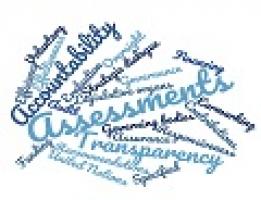 As extrabudgetary or voluntary contributions have become essential for most United Nations system organizations to pursue their mandates, donors are increasingly undertaking their own assessments of these entities and their programmes to ensure that their funds have been used efficiently, and for intended purposes and with the expected levels of accountability. These bilateral assessments have been proliferating in recent years, giving rise to expressions of concern from the management and oversight bodies. Many organizations view them as a challenge requiring them to devote resources and staff time; they also lead at times to duplication and overlap, despite the value perceived as inspiring introspection and reform. The report reviews the various approaches, arrangements and practices in place regarding donor-led assessments in the United Nations system, identifies areas of common challenges and concerns, and makes recommendations as appropriate. Ways should be explored to enhance donor confidence and their reliance on the oversight reports by further strengthening of the organizations’ oversight and evaluation functions and bridging the assurance needs of donors with the work performed by the existing oversight bodies. Equally, organizations should work closely with donors to increase the understanding of donors’ requirements, expectations and needs. This should include an effort to apply better reporting on results, and participation in initiatives such as the International Aid Transparency Initiative (IATI). The report calls for better sharing of donor assessments that would help to reduce the risk of overlap and duplication among them. It would also provide to the stakeholders concerned a broader evidence base for their assessments. The Multilateral Organization Performance Assessment Network (MOPAN) should evaluate its methodology to assess its rigour and utility in providing the expected levels of information and determine its effectiveness, in view of further reducing the degree of duplication and level of transaction costs. The report recommends establishing a central function for coordinating the multiplicity of assessments, including for managing the information provided to donors, ensuring consistency and tracking the follow-up action on assessment findings and recommendations. Such a measure will also allow for organizational learning and improvement. The report advocates initiating and sustaining a high-level dialogue with donors to determine shared priorities and define a multi-stakeholder assessment platform with a robust framework and methodology to reduce the need for additional bilateral assessments. The report contains six formal recommendations, three of them addressed to the legislative organs/governing bodies and three to the Executive Heads of the United Nations system organizations.
As extrabudgetary or voluntary contributions have become essential for most United Nations system organizations to pursue their mandates, donors are increasingly undertaking their own assessments of these entities and their programmes to ensure that their funds have been used efficiently, and for intended purposes and with the expected levels of accountability. These bilateral assessments have been proliferating in recent years, giving rise to expressions of concern from the management and oversight bodies. Many organizations view them as a challenge requiring them to devote resources and staff time; they also lead at times to duplication and overlap, despite the value perceived as inspiring introspection and reform. The report reviews the various approaches, arrangements and practices in place regarding donor-led assessments in the United Nations system, identifies areas of common challenges and concerns, and makes recommendations as appropriate. Ways should be explored to enhance donor confidence and their reliance on the oversight reports by further strengthening of the organizations’ oversight and evaluation functions and bridging the assurance needs of donors with the work performed by the existing oversight bodies. Equally, organizations should work closely with donors to increase the understanding of donors’ requirements, expectations and needs. This should include an effort to apply better reporting on results, and participation in initiatives such as the International Aid Transparency Initiative (IATI). The report calls for better sharing of donor assessments that would help to reduce the risk of overlap and duplication among them. It would also provide to the stakeholders concerned a broader evidence base for their assessments. The Multilateral Organization Performance Assessment Network (MOPAN) should evaluate its methodology to assess its rigour and utility in providing the expected levels of information and determine its effectiveness, in view of further reducing the degree of duplication and level of transaction costs. The report recommends establishing a central function for coordinating the multiplicity of assessments, including for managing the information provided to donors, ensuring consistency and tracking the follow-up action on assessment findings and recommendations. Such a measure will also allow for organizational learning and improvement. The report advocates initiating and sustaining a high-level dialogue with donors to determine shared priorities and define a multi-stakeholder assessment platform with a robust framework and methodology to reduce the need for additional bilateral assessments. The report contains six formal recommendations, three of them addressed to the legislative organs/governing bodies and three to the Executive Heads of the United Nations system organizations.


